There is an attack from the right wing in this very moment that has as target women and civil rights, in a global plan aiming to cancel the rule of law. What’s happening in Europe – with the Poland, Hungarian and Italian governments – can make us understand what is their purpose: to bring back on top the traditional family (man – woman). A prospective that necessary leads to the denial of the last fifty years achievements, like divorce, abortion, family right, the fight against violence on women, and whatever is about women empowerment and sexual freedom.
Parties, groups and right-wing movements are acting transversely not just with ideas and political actions, but also driving a lot of money in that direction

Money that should be used to organise anti-abortion campaigns and to support the “natural” family. According to the report of Francesca Sironi e Paolo Biondani published on the Espresso (P.Biondani, F. Sironi, «Pioggia di rubli ai cattoleghisti», L’Espresso, 16/11/2018) it’s from Russia that the money comes from, to Italy, Spain, UK, Poland, Hungary and also USA, to finance the right wing catholic organizations, like the Dignitatis Humanae Institute where Steve Bannon, theorist of global sovereignty and former strategist of Donald Trump, is designing a school for the future young leaders of the European right wing.
A deployment that sees together evangelic, catholic and orthodox leaders straight with right-wing movements, even pro-Nazi, which wants to cancel everything that could question their “order of ideas” based on race and gender. Indeed, the main expression of this way of thinking is the World Congress of Families, a 2007 project born and financed by the billionaire orthodox Konstantin Malofeev, a Putin man, and that has as leader Brian Brown, one of the most influent American activist no-Lgbt and dear friend Viktor Orbán, the Hungarian premier.

A global meeting that is going to happen just at the end of March in Italy, Verona, with the province, region and Family Ministry patronage and with the participation of the European Parliament President Tajani, Interior Minister Salvini, Education Minister Bussetti and of course, the Family Minister Fontana.
But women in Europe did not give up and they are going to animate an authentic movement to contrast racist, xenophobic, misogynist policies of the right-wingers who continue to advance everywhere. Thanks also to the push received by Ni Una Menosargentino as well as by the American #MeToo, their grip is also extending to those who have never done politics, both among women and men, with a capacity for aggregation and mobilization that has not been seen for some time.
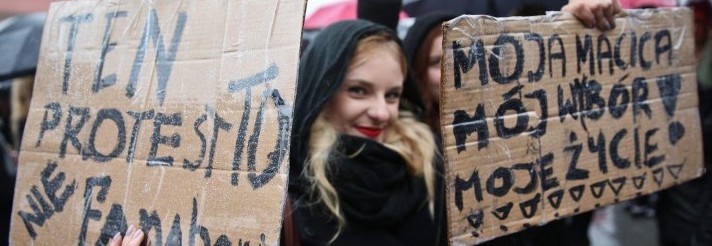
Even – and perhaps above all – in those countries where the most radical right-wings are in charge. In Poland, where the government is led by the ultra-Catholic right of the Prawo i Sprawiedliwość (PiS), women continue protesting to stop various attempts to cancel an already restrictive abortion law (only in case of life-threatening, rape or serious malformation), but they are also the first to protest in favour of the independence of the judicial system and democracy, against all racism and fascism, representing a political resistance that had never been seen in this country.
But these activists, because of their work, have been assaulted and beaten in Poland
for example two years ago during the national independence centenary day, or persecuted in the workplace. And associations for women victims of violence are also under threat: the Women’s Rights Center, Baba and the Center for Women’s Rights in Łódź have been searched and the financial resourches, for many of these NGOs, has been suspended. Also divorce is under attack, on which the Minister of Justice, Zbigniew Ziobro, has tried to impose the obligation of paid mediation, exactly as the League senator Simone Pillon is trying to do in Italy with bill 735.
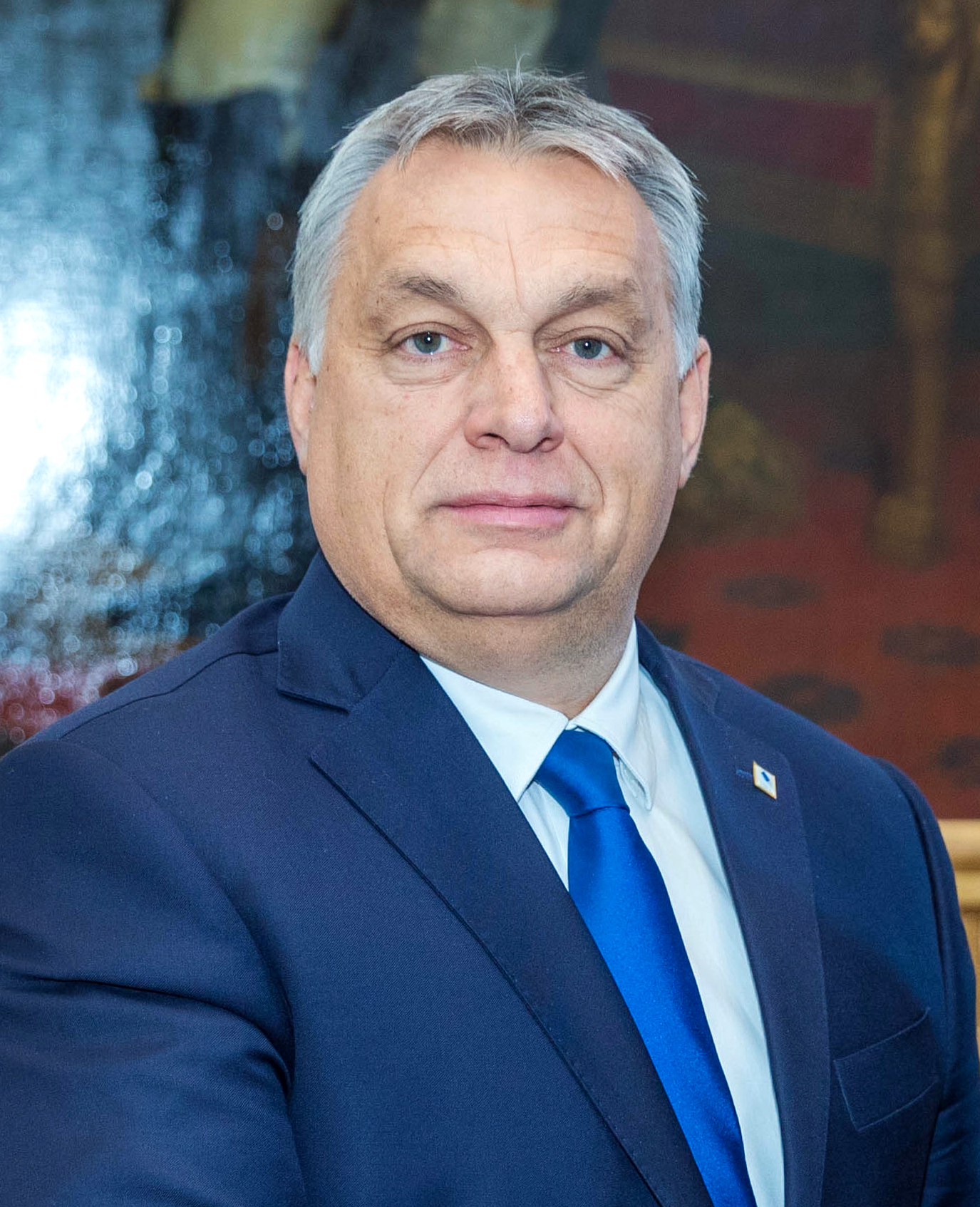
Unfortunately, the Hungarian feminist movement is weaker and the government of ultra-reactionary Viktor Orbán would like to ban abortion and shut women at home to give birth to children against the threat of migration. Even after the scandal of József Balogh, deputy of Fidesz, who fractured his wife’s skull and several bones beating her, the government didn’t ratify the Istanbul Convention to combat male violence against women, because the Convention is in fact “an attack on the traditional family”. Same result in Bulgaria.
In Italy, feminist movements seem to be more powerful. Non una di meno has brought more than 200,000 people to march across the streets, both last year and this year, against male violence on women but also to fight the racist and xenophobic policies of Deputy Prime Minister Salvini and the Pillon bill. Yet despite the strength of the feminist movements (we also think of Ireland, where a referendum changed the abortion law on 25 May), the Europe seems to believe less in women than the right-wing, where many leaders are women. The current European Parliament is made up of 63% of men and in ten Member States men make up 80% of their national parliaments (Bulgaria, the Czech Republic, Estonia, Cyprus, Ireland, Latvia, Hungary, Malta, Romania and Slovakia).
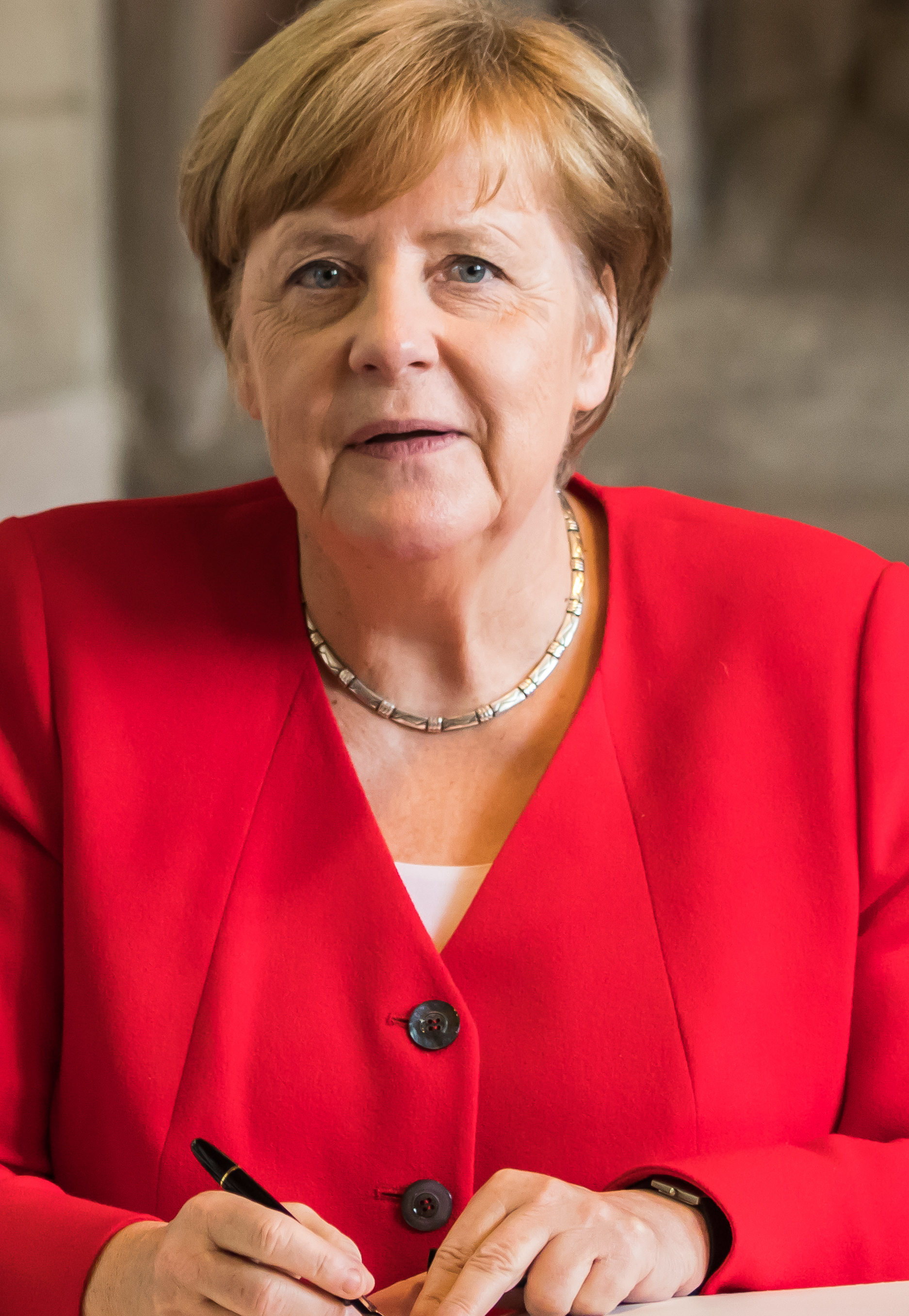
The leaders of the right
The participation of women in politics it’s different around the countries: we find France, Sweden, Slovenia, Denmark, Norway, Finland and Spain with women who are heads of government, deputy prime ministers, ministers or simple parliamentarians. But the majority of those who is in top, institutional or party positions, are women who choose to be with the right-wing, from conservatives to the extreme right. For example, four of the most powerful women on the European political chessboard are right wingers: Angela Merkel, German Chancellor, is considered one of the most powerful women in the world, who left the leadership of Christlich Demokratische Union Deutschlands (CDU) to another woman, Annegret Kramp-Karrenbauer; Theresa May, ex British Prime Minister leader of the Conservative Party, who is leading the United Kingdom in the difficult exit from the EU. Then there is the Norwegian president and leader of the conservative party Høyre, Erna Solberg, who proposed to restrict the abortion law and leads convinced anti-immigration policies with another iron woman, finance minister Siv Jensen, leader of the Fremskrittspartiet, that became a homophobic far-right side thanks to her. Then we find Beata Szydło, who was at the helm of the Polish ultra-Catholic right-wing government and now is Deputy Prime Minister with responsibility for social issues. Szydło is an Eurosceptic and homophobic holding the reins of the first party in Poland, the Prawo i Sprawiedliwość (Pis) and in recent years she has pursued very tough policies regarding women’s rights, first of all abortion.
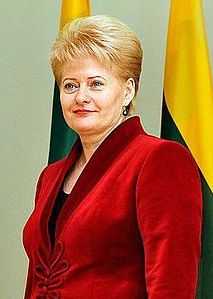
Equally strong but with more liberal positions are women like Dalia Grybauskaitė, president of Lithuania elected as independent but supported by conservatives with a background in the Lithuanian Communist Party and nicknamed, as appropriate, the Baltic Thatcher, Iron Lady or Steel Magnolia; Kersti Kaljulaid, President of the Estonian Republic, a liberal conservative open to LGBT rights and immigration who in 2017 appeared on the list compiled by Forbes magazine of the 100 most powerful women in the world and among the most influential female political leaders; and Kolinda Grabar-Kitarović, president of Croatia among the ranks of the Hrvatska demokratska zajednica (Hdz), conservative party founded by Franjo Tudjman: Grabar-Kitarović (born in 1968) is the youngest person who has ever held the highest office in the state, and she also appears on the Forbes list as one of the most powerful women on the planet.
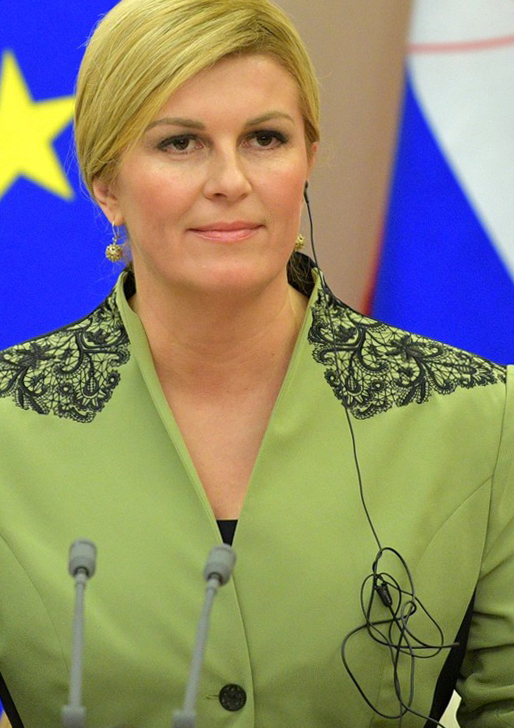
Conservative and Catholic, Grabar-Kitarović supports the traditional family but she didn’t oppose herself to the law for equality rights of homosexual couples, except for adoptions. About the abortion, she believes that cancellation does not resolve the issue and that therefore to prevent unwanted pregnancies it is better to focus on information and education. The Germans are more extreme. Tatjana Festerling, former leader of Pegida, who can boast of having been defined by Merkel as “the most dangerous woman in Europe”, in August 2015 saw her Facebook profile blocked for continuous xenophobic and racist comments; and on its fronts in October 2017 the Dresden court issued a conviction order for instigation and insult.
Frauke Petry is instead the leader of Die Blaue Partei and former head of Alternative fur Deutschland, of which he has helped to change the face by transforming it from a Eurosceptic party into a xenophobic, anti-abortist and populist political group. To take AfD in hand was Alice Weidel, current vice president of the party, who is avowedly pro-Nazi but also homosexual:
married to an asian woman director, with whom she grows two adopted children, she believes in traditional marriage and leads a racist policy and strongly anti-immigration
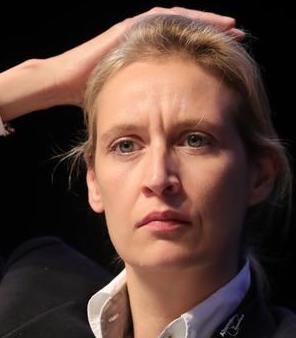
In Northern Europe we have Anke Van dermeersch, Miss Belgium in 1992 and competitor for Miss World and Miss Universe, who is among the leaders of the conservative party Vlaams Belang of the Flemish bloc; the Danish Pia Kjærsgaard, the co-founder of Dansk Folkeparti, the far-right anti-immigration party that she led from 1995 to 2012, of which she is still a member today; and finally Ebba Hermansson, 22, who is the youngest member of the Swedish parliament and one of the spokespersons for Sverigedemokraterna, a conservative nationalist party: a champion of policies against migrants in order to keep women “safe from sexual violence”. In the United Kingdom there is Diane James, the new leader of the UK Independence Party (Ukip) of Nigel Farage, and Jayda Fransen, a former deputy of the British First fascist ultra-right, who stood out for his xenophobic actions and whose tweets with anti-Muslim videos were shared by Donald Trump. Arrested several times for her offensive speeches and public conduct, Fransen was sentenced in March 2018 to 36 weeks in prison for molesting a woman who wore the veil.
ACCORDING TO A RESEARCH BY THE FRIEDRICH EBERT FOUNDATION, THESE WOMEN ARE MORE RADICAL LEADERS THAN MALE COLLEAGUES

Indeed, they attract the female electorate on the ground of family support policies (welfare, economic bonuses) and migration policies, since immigration is often perceived as a threat in terms of personal security. The perfect example of this, is certainly Marine Le Pen, leader of the Rassemblement National ex Front National, who rejected the definition of feminist, and now is presenting herself as a champion of women’s rights, indicating in Islam and immigration the greatest dangers. On the same wavelength, the Italian Giorgia Meloni, leader of the right-wing Fratelli d’Italia party and former minister of the fourth Berlusconi government, claims to defend women from Islamization and advocates the traditional family.
But what today appears to be the real news is probably Vox, the Spanish party founded in 2013 that won the elections in Andalusia last December and which opposes immigration and feminism and pushes for a centralized state like that of Franco. The party not only wants to erase abortion but does not recognize male violence against women, is against free education in schools, and wants to remove funding for feminist associations. In particular, the new Andalusian government – made up of Vox, the People’s Party and Ciudadanos – offers support to the traditional family and a plan that dissuades women from the idea of aborting, and that would not guarantee protection to all those who may suffer from family abuse. A proposal that has been rejected, also thanks to the thousands of women who gathered in protest in front of the local parliament, on the day of the election of President Moreno.
THE FIRST REQUEST FOR VOX WAS TO REPEAL THE LAW ON VIOLENCE AGAINST WOMEN
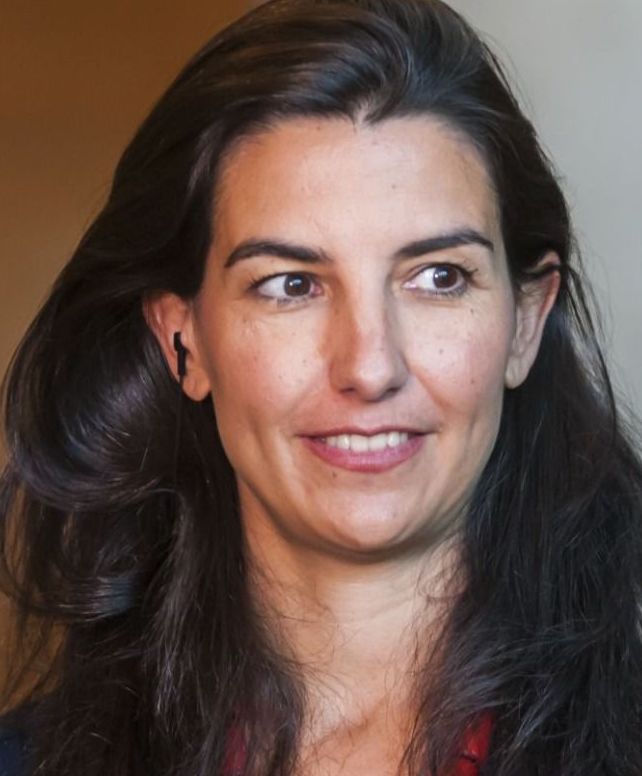
In the secretariat of the president of Vox, Santiago Abascal, we find Mazaly Aguilar, deputy secretary for institutional relations who said many times, that violence has no gender, putting on the same level the historical and systemic male violence against women with the one suffered from men in the home which has much less alarming numbers. Denying that there is a specificity regarding male violence against women, Aguilar says she does not want to eliminate any law that protects victims of abuse even if “the current legislation only gives refuge to a part of the family”. Same statements were maid by Salud Anguita, deputy secretary of the organization.
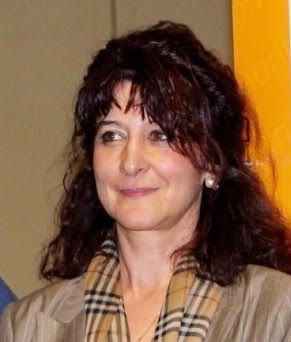
Rocío Monasterio is spokeswoman for the Electoral Committee and president of Vox in Madrid, as well as deputy secretary for social affairs. She is an architect happy to combine his professional life with her role as mother of 4 children. A convinced anti-abortionist and supporter of the natural family, Monasterio is against what she calls “gender ideology business”, and is against the gender quotas seen as a humiliation for women. In the party secretariat we find Alicia Rubio, a homophobic who wrote a book entitled “Cuando nos prohibieron ser mujeres… y os persiguieron por ser hombres”, which sold 4,000 copies and inspired President Santiago Abascal’s speech against the so-called ideology gender. In addition to having written the feminist anti-bible, she is convinced that abortion is a murder and is opposed to it even in the case of rape.
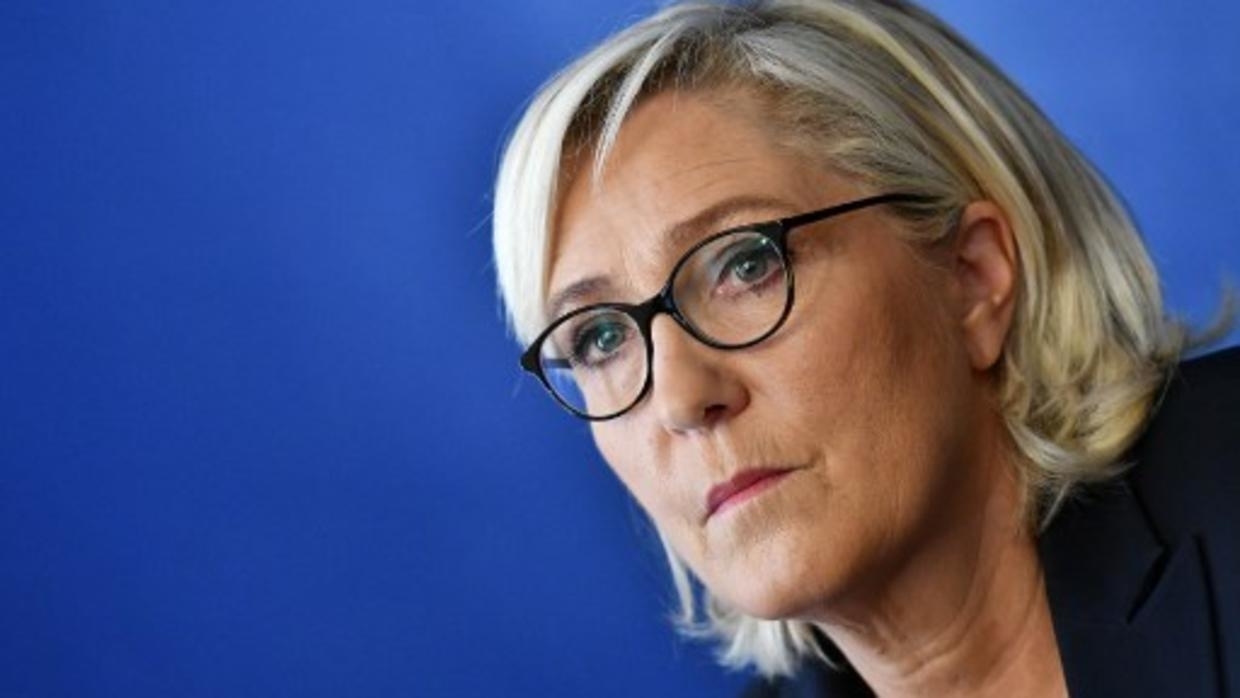 Female populism
Female populism
We can definitely say that there is a sort of “female populism” that focuses on those women who are at risk of poverty and who are affected by policies indifferent to women’s needs, such as exclusion from work, lack of welfare, wider protection from male violence, and who see these interventions as support for material problems to be faced every day.
POSITIONS OFTEN BORN FROM THE DISAPPOINTMENT FOR THE LEFT PARTIES USUALLY GUIDED BY MEN
who have not always seriously assessed the needs of women and their political potential. For example, with Islam the left the left thought that through politically correct it could solve all the contradictions of the case, without thinking about the problematic nature of a religion that is certainly not “progressive” in the field of women’s rights and lived by many (not all ) as a pillar of their own identity. A short-sightedness that the right has ridden with all its strength by combining anti-migration policies with women’s rights.

Furthermore, it was understood from the right-wings that having women in top positions could have resulted in a greater grip on a part of the electorate – the female one – which in the meantime has emancipated itself, even if mainly thanks to the struggles of the feminist movement. In short, a paradox if we consider that party leaders on the left continue to waver in this direction. But given the ability of women to take their place without someone (man) giving it to them, things are likely to change. We saw it in a disruptive way in the USA midterm elections, when women, also supported by the #MeToo movement, fought openly with their party colleagues, reaching 272 candidates (185 Democrats and 52 Republicans), on a total of 964, and 117 were elected, raising the percentage of women in Congress by two points (22%).
_________________________________
Inquiry published by the Italian magazine Micromega – Repubblica.




 This is the english section of
This is the english section of 